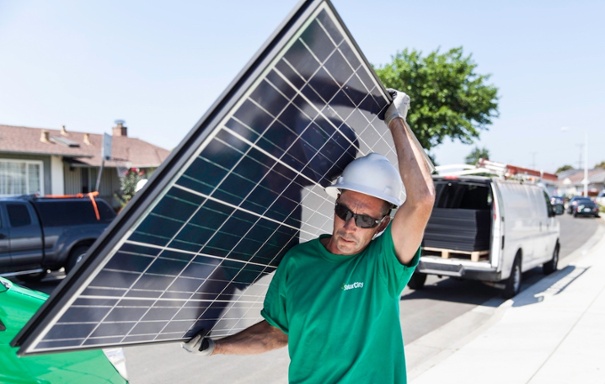
The net benefits of rooftop solar PV and distributed energy resources (DER) have been tallied by US residential installer and utility and grid services newcomer SolarCity and the Natural Resources Defence Council (NRDC) for a new report that claims they produce US$7-14 million in benefits annually for Nevadans.
The report – which presents an economic analysis of the benefit of harnessing DER – fortifies the ongoing argument for net-metering, as it utilises this methodology in particular to demonstrate the cost/benefit analysis of rooftop solar and DER in the state.
Unlock unlimited access for 12 whole months of distinctive global analysis
Photovoltaics International is now included.
- Regular insight and analysis of the industry’s biggest developments
- In-depth interviews with the industry’s leading figures
- Unlimited digital access to the PV Tech Power journal catalogue
- Unlimited digital access to the Photovoltaics International journal catalogue
- Access to more than 1,000 technical papers
- Discounts on Solar Media’s portfolio of events, in-person and virtual
SolarCity and NRDC’s white paper, Distributed Energy Resources in Nevada, is the first peer-reviewed study to quantify all the rooftop solar cost and benefit variables identified by the PUC. The paper recommends policymakers and regulators develop advanced grid planning procedures that incorporate these benefits into the utility ratemaking process, which would enable Nevadans to see the benefits on their electricity bills and ensure that the state transitions to a cleaner, more affordable, and resilient grid.
The study reports that net-metering could offer benefits to all utility customers of between 1.6 ¢ and 3.5¢/kWh for deployments during 2017-2019.
The goal of the report is to provide fill a void in the market for a complete accounting of the cost and benefits of rooftop solar under net-metering, for all stakeholders. The hope in future is that the cost/benefit analyses and associated regulatory processes should utilise all the benefit categories as outlined in the paper – so that the full benefits of net-metering might be seen.
The report can be viewed here.
Ongoing controversy in the state
Net-metering has been a highly controversial topic across the country, but has faced a prickly reception in Nevada in particular; after the state’s Public Utilities Commission (PUC) voted unanimously to spike the rates and boost charges for consumers; tripling the fixed fee for solar customers and lowering the value of credits that could be earned by providing excess energy into the grid.
This unprecedented decision had far-reaching ramifications for the Nevada residential PV market, as major players in the sector, including SolarCity and Sunrun, responded by halting the sale and installation of rooftop modules and ceasing operations.
The PUC argued however that the new rate structure was integral to ensuring that solar customers did not unfairly shift costs onto non-solar ratepayers. In fact, the PUC claimed that net-metering participants see subsidy that costs the industry hundreds of millions of dollars – contrary to a 2015 directive to reduce any “unreasonable shifting of costs” from net metering participants to other energy customers.
In their ruling to assess the scheme, Nevadan utility commissioners outlined 11 possible variables to determine the value of excess energy through net-metering, including costs, grid capacity, social and environmental boons etc. However, when coming to the decision to effectively eradicate net-metering altogether, commissioners only assessed two out of the 11 variables when determining the value of excess energy produced through net-metering.







